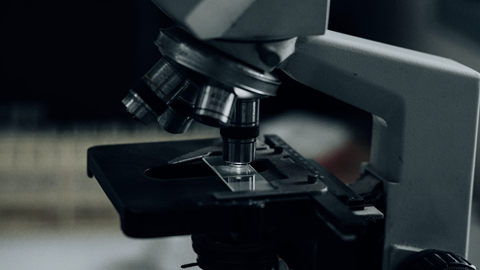Part 3 of a four-part series: From Theistic Evolution to Intelligent Design: Why I changed my mind
Read part 1: Wrestling with the Divide - Why I Couldn’t Keep Faith and Science Apart Anymore here
Read part 2: When the Stones Cry Out - Intelligent Design and the Voice of Creation here
Read part 4: A Lion, a Lamb, and a Lab Coat - The Hope for Unity in Science and Faith here
Being Alone Together
It appears that Swamidass is more comfortable with a NOMA situation, where theology tells us about God and science tells us about the material world. He said:
“I am a Christian and I make sense of the world really through theology more than I do through science.”
If Neo-Darwinian theory is good enough for the atheist and theist alike, then science is irrelevant to apologetics. It admirably allows atheists and Christians to work side-by-side in the lab, but sadly leaves God out in the cold peering through the laboratory window.
I think part of the reason that theistic evolutionists are comfortable working in science is because their faith doesn’t threaten the scientific materialism of their colleagues. Faith ends up looking like a helpful spiritual add-on to science rather than the foundation of the whole enterprise. The problem with an add-on faith is that it can just as easily be lopped off.
Rorschach or Book of Nature?
Interestingly, many theistic evolutionists don’t find God under the microscope but do in the courtroom. It appears they are more convinced of God’s existence by the moral argument than the scientific argument.
I’m glad that they find assurance for their faith in this minimalist approach, but it leaves a huge chasm between an awe-inspiring Big Bang and the appearance of morality and consciousness in human beings. They fill a gap with a rather bland series of naturally selected mutations.
They give God credit for the big-ticket items, but don’t want to bother Him with the mundane task of speciation. Sadly, they reduce the book of nature to a Rorschach ink blot that offers us a vague psychological rendering of God’s subconscious rather than fine biological literature that reveals the sharpness of His mind.
Up next: In the final part, we consider what it might look like for the lion of science to lie down with the Lamb of God. Could there be a way for both worlds to flourish together, without compromise?
Erik Strandness is a physician and Christian apologist who practiced neonatal medicine for more than 20 years and has written three apologetic books. Information about his books can be found at godsscreenplay.com.


























